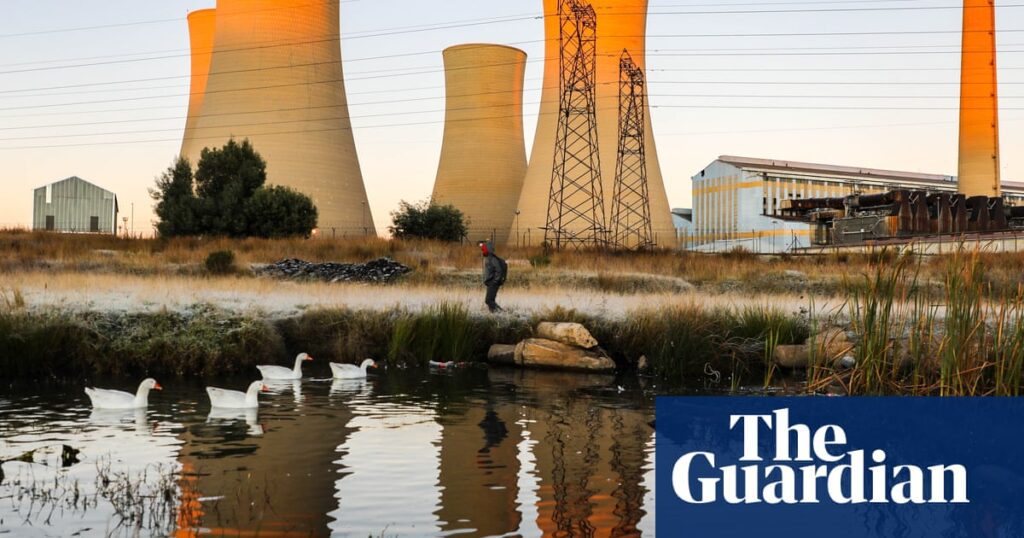The article discusses the transition from coal at the Komati Power Plant in South Africa, which ceased coal production in 2022 after 61 years. This shift has raised concerns about employment in nearby communities, where many, like Bushijwe Ndebele, face uncertainty after losing jobs due to the closure of coal mines.
Despite Eskom, the state utility, not laying off full-time staff, the impact on local economies is severe. The term “Just Transition,” coined in the early 1990s, refers to moving toward a decarbonized economy without sacrificing jobs. South Africa, a major carbon emitter, is committed to reducing coal dependency, with coal power dropping from 90% to 82% of electricity generation in recent years, while wind and solar power are expanding.
International pledges to support this transition have resulted in significant financial commitments, although challenges persist, including rising unemployment and the need for new renewable infrastructure.
Eskom is also grappling with financial instability and frequent blackouts, complicating the transition. Projects aimed at fostering local job creation and renewable energy development, such as a solar plant at Komati, are underway but slow to launch. Residents express frustrations over job losses and economic decline, emphasizing the importance of developing sustainable alternatives. The article paints a complex picture of a community wrestling with changes in energy production and economic stability.
Source link


